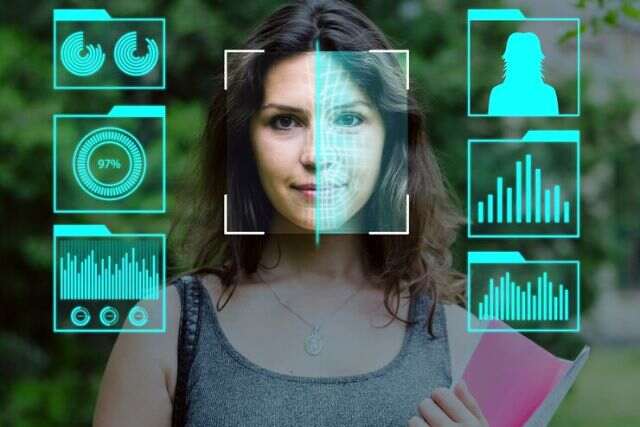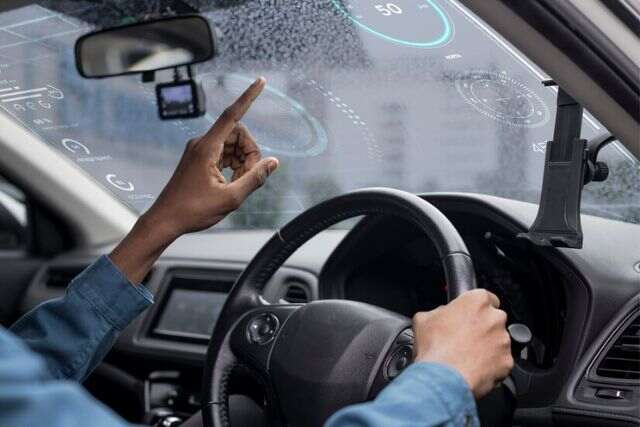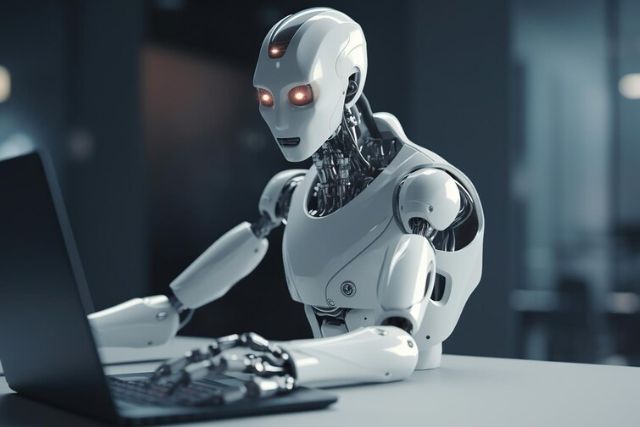Thanks to the technology known as artificial intelligence (AI). Machines can now think, analyze, and transform data into meaningful information. The world of today is seeing an increase in its popularity.
Indeed, though some fields, like medical engineering, depend on artificial intelligence, it’s decreasingly becoming a pivotal element, either directly or laterally, of our everyday conditioning. Let’s discuss how AI is applied in day-by-day activities. Some popular AI examples that you may be familiar with are listed below. We will talk about The Important Examples Of AI In Everyday Life Routine
Examples Of AI In Everyday Life:
These are a few incredible instances of AI that you should be aware of:
Face Recognition:

The best feature for device security is face lock, which is why many people use it on their iPhones or Android phones. It’s also quite simple to use, and if you’re in a rush, it doesn’t require any passes or patterns. Humans can identify coexisting species with the use of speech and face biometrics, and the same AI can identify an individual using biometrics by using facial recognition traits. With the aid of machine learning technology, artificial intelligence (AI) can now analyze and store a person’s facial traits to identify them.
Smart Cars:

Every day there are more and more vehicle accidents. A lot of individuals are considering autos that can save the lives of both drivers and passengers in collisions. An automobile that can drive itself, stop at traffic signals, beep at obstructions. and can now safely travel on the roads we’ve ever dreamed about because of artificial intelligence. Autonomous buses are a project of Tesla. In the US, Tesla has several self-driving buses, and more are in the works AI makes all of this possible. Autonomous vehicles are outfitted with safety mechanisms. such as speeding at a high risk and running red lights.
Related Reading: Are Self Driving Cars Safe? Pros And Cons
Digital Assistants:

It seems wonderful to have an assistant available to us in our hectic lives, doesn’t it? There is nothing your digital assistant can’t accomplish. Occasionally, you might want to listen to music but feel too tired to search for it. Moreover, you might not be able to reach the fan or air conditioner to switch them on or off. Digital assistants can help with this. They will take care of things like turning on the fan or playing music for you. Apple’s Siri and Amazon’s Alexa are two prominent instances of this technology. They promptly schedule calls, send emails, and schedule appointments in addition to understanding our instructions. Please keep asking us for ideas on how to deliver more individualized experiences.
Entertainment And Social Apps:

To improve user experience, a lot of social networking sites incorporate AI. On Facebook, Instagram, and Twitter, for instance, friend recommendations could be displayed to you. These applications display users whom you may know or who are in your contacts. Thanks to AI, this is feasible. Through your posts and images, AI and ML observe how you use the app and gather information about your friends. What to watch next is also suggested by Netflix and Prime. They use a rating system that is based on the viewer’s previous viewing habits.
Google Predictive Search Algorithm:
Ever notice that occasionally, even before you finish typing, something you want to look for shows up on the screen when you start typing? Google autocomplete feature, which anticipates what you are searching for based on the words you’ve typed, is the cause of this. Google uses its vast machine learning knowledge. and experience to create the prediction algorithms that make this possible.
E-commerce:

People use websites or applications to shop online these days for a variety of purposes. when we search for a specific item, such as black shoes. To locate just what we’re looking for, we may even narrow down the results by price or color. This takes place in an issue of minutes. All of this is made possible by simple AI algorithms that facilitate effective product search organization.
Wrap Up:
While it can assist machines in performing tasks similar to those of humans, artificial intelligence (AI) is much more than that. AI enables machines to operate swiftly and effectively, finishing activities that would take a person days in a matter of minutes. Artificial Intelligence is accessible to anyone and is not domain-specific. Everyday devices such as self-driving cars and personal digital assistants use artificial intelligence (AI).

